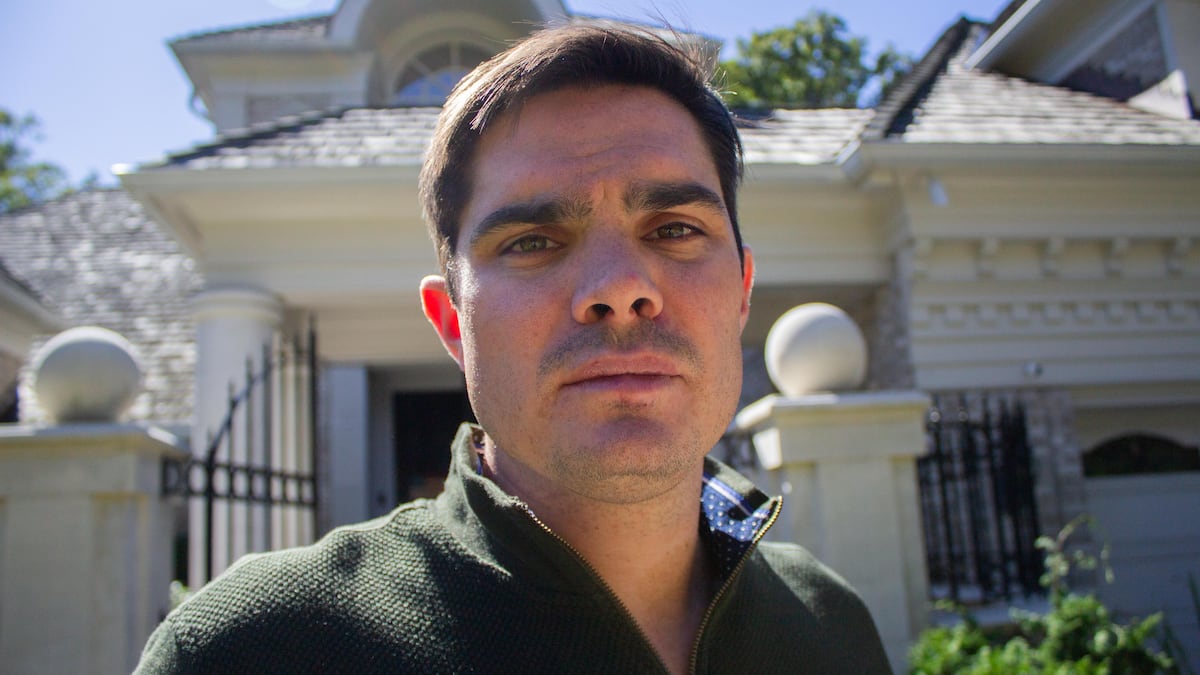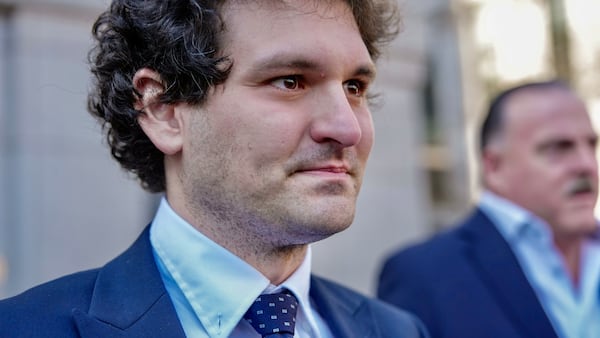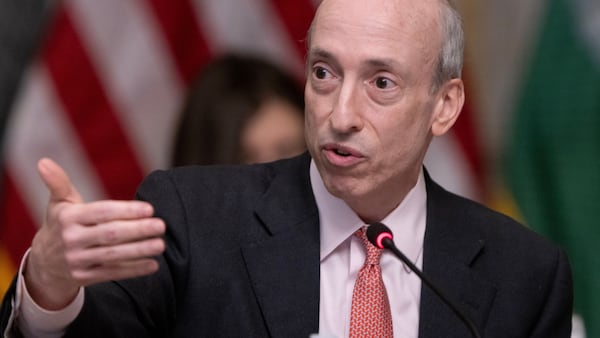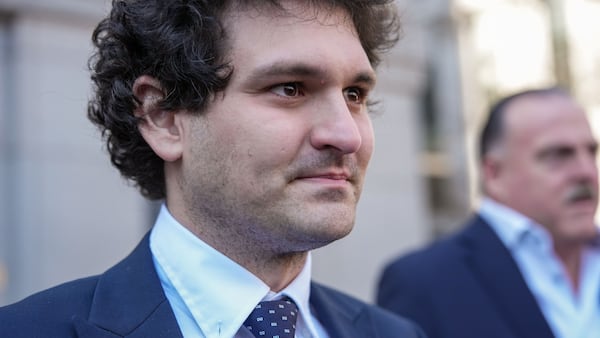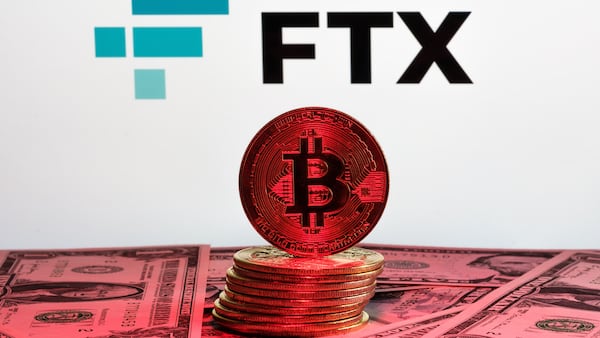- Former FTX senior exec Ryan Salame tells DL News he's essentially innocent even though he pleaded guilty.
- Salame started a seven-and-a-half year prison sentence last week.
Ryan Salame puzzles me.
In September 2023, the former FTX executive pleaded guilty to violating campaign finance law and operating an unlicensed money-transmitting business.
One year later, the 31-year-old confirmed to Lewis Kaplan, the judge presiding over his case, that his admissions of guilt were true.
Yet, in a media blitz days before he was set to start his seven-and-a-half year sentence, Salame asserted his core innocence.
“I don’t think I did anything criminally wrong,” Salame told me in an interview.
Even so, he now resides in a medium-security federal prison in western Maryland.
Better with facts
Salame wants it both ways: a plea agreement to reduce his time in prison and a revised narrative that vindicates him.
In fact, he wrote an unpublished 180,000-word memoir to retell the saga of FTX from his perspective — with the help of a ghost writer recommended to him by famed author Michael Lewis.
“I’m not great with character development,” he said. “I’m much better with facts.”
Last Wednesday, less than 48 hours before Salame surrendered himself to authorities, I travelled down to the ritzy Washington suburb where he lived to tease apart the puzzle.
Salame (pronounced Salem) was the co-CEO of FTX Digital, the Bahamas subsidiary of the crypto exchange that imploded in November 2022 and sparked the most sensational fraud trial in the crypto industry’s 15-year history.
When the dust cleared, Sam Bankman-Fried, the co-founder and CEO, had been convicted by a federal jury in New York on seven counts of fraud and conspiracy in connection with the misappropriation of $8 billion in customer funds. He was sentenced to a 25-year prison term.
And Bankman-Fried’s key lieutenants — Caroline Ellison, Nishad Singh, Gary Wang, and Salame — had all reached plea deals with the Department of Justice.
The outlier
But of the four, Salame was the outlier.
He was the only one who hadn’t testified against his former boss during Bankman-Fried’s trial in October 2023.
Salame said he wasn’t involved with the fraud at FTX and Alameda Research, the interconnected crypto investment fund Bankman-Fried also managed.
And unlike many of his colleagues, he was less an awkward nerd, and more a red-meat-loving crypto bro. (Salame told me he only seemed bro-y by comparison to Bankman-Fried and the other three lieutenants.)
‘I went from working an obscene amount and having people messaging me every minute of every day to literally nothing to do.’
— Ryan Salame
Since FTX declared bankruptcy, none of Bankman-Fried’s convicted lieutenants have — outside a courtroom — spoken publicly.
Salame is the first to open up.
Ryan Salame’s $4 million mansion was hard to miss. “It has the white Porsche in the driveway,” he texted me.
Sporting an indoor pool, an outdoor pool, a sauna, and a billiards room, among other amenities, his home was a testament to the prosperity he enjoyed as a top executive at FTX. He was once worth as much as $1 billion, he told me. Now, he was worth zero.
‘Ton of regrets’
Salame answered the door and welcomed me inside. Tall, fit, and tan, he was barefoot and wore a green fleece, blue jeans, and a bracelet his step-daughter had made for him.
Michelle Bond, Salame’s wife and a former Republican congressional candidate in New York backed by members of the Trump family, also said hello.
Family photos stood on a table facing the foyer. In November 2023, the couple had a son.
After some pleasantries, Bond, 45, who is also in serious legal jeopardy, left us. Salame and I settled into a leather couch in his home’s wood-panelled library.
Happy #NationalIceCreamDay! We stopped by Rogers Frigate in Port Jeff tonight -- my hometown favorite. pic.twitter.com/pCzOyDeSbY
— Michelle Bond (@michellebond111) July 18, 2022
Nearby was a baby bouncer, and on another table stood an almost-five-foot replica of the Eiffel Tower that Salame had built out of 10,000 Lego bricks.
“I went from working an obscene amount and having people messaging me every minute of every day to literally nothing to do,” he said.
Well, nothing but reflect on the decisions and events that derailed his once flourishing career at a $32 billion crypto startup.
“I have a ton of regrets,” said the western Massachusetts native, his legs criss-crossed on the leather couch.
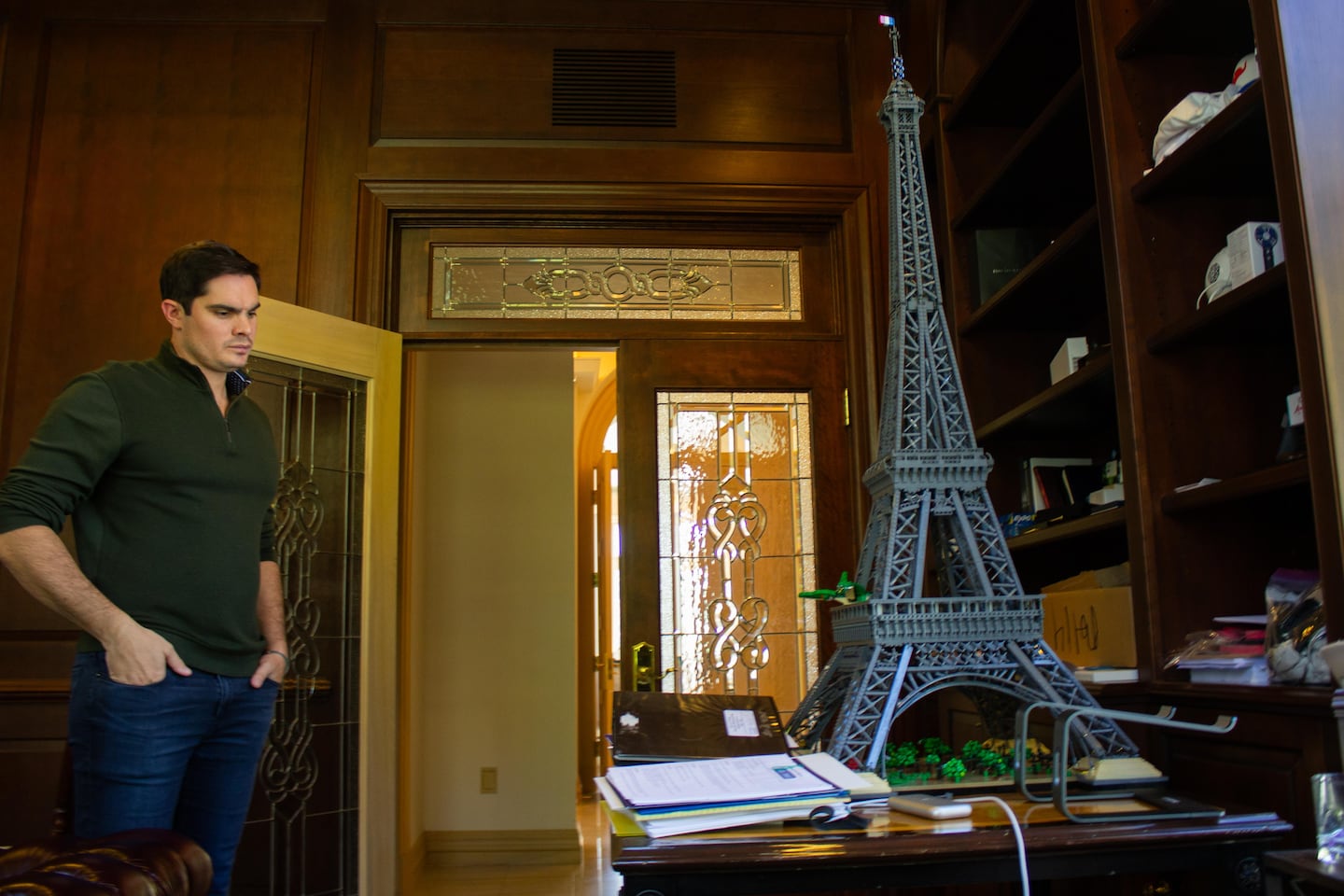
One of Salame’s chief misgivings? Bad lawyers, he said. Another? That he’d stood up more often to Bankman-Fried.
In 2019, Salame went to work at Alameda Research and set up banking relationships for the fund and FTX. Soon enough, he became one of the crypto mogul’s most trusted lieutenants.
Prosecutors later said he helped fraudulently obtain an account at Silvergate, a bank that catered to crypto clients.
‘Had I not gone to lawyers, I think I would be in a drastically better position.’
— Ryan Salame
In October 2021, Salame moved to the Bahamas to work for FTX. “Things just moved wicked fast,” he said.
As FTX grew, Bankman-Fried spent heavily on currying influence in Washington. By the time the exchange collapsed, the CEO had contributed more than $100 million to political candidates and PACs, or political action committees.
But many of the contributions, often to pro-crypto Democrats and Republicans, weren’t proper, court papers showed. Instead, they were part of a straw donor scheme to conceal where the funds came from, said the government.
Salame was a key actor in Bankman-Fried’s plot, one of the largest campaign finance offences in US history, wrote prosecutors.
But Salame thought he was acting within the bounds of law. FTX’s lawyers blessed the means through which he directed millions to political candidates and set up bank accounts, he said.
“Had I not gone to lawyers,” he said, “I think I would be in a drastically better position.”
Neither Dan Friedberg nor Can Sun, two former FTX lawyers that Salame referenced in our conversation, responded to a request for comment.
Pleading guilty
The former FTX executive’s gripes with bad lawyering continued after the collapse of the crypto exchange.
In September 2023, Salame accepted a plea deal from the Justice Department to protect his wife, he argued in court documents.
At the time of negotiations with prosecutors, Bond was also under investigation for campaign finance violations.
Salame said his lawyers told him that, to their understanding, if he were to plead guilty, the Justice Department would lay off Bond.
However, almost one year later in August, Bond was charged with campaign finance violations stemming from her relationship with Salame. She pleaded not guilty.
As a result, Salame asked to revoke his guilty plea, but prosecutors denied that there was any sort of deal.
“Having purported to accept full responsibility for his actions prior to sentencing, Salame now resorts to inaccurate, incomplete, and outright false assertions,” wrote the government in September in response to Salame’s petition.
Salame told me he was dissatisfied with his lawyers at Mayer Brown, an international law firm that originated in Chicago, and hired a new firm to help with his defence from prison.
Representatives for Mayer Brown declined to comment.
Pleas of despair
Salame also wished he had quit FTX much earlier. He wished he and his other FTX compatriots had been more concerned with nitty-gritty legal details. And he wished he hadn’t remained initially silent.
“I could read you a list of regrets,” Salame concluded.
Customers sent him suicide notes after FTX collapsed. “Some are more desperate,” he said. “Some are less.”
The former FTX executive received an especially horrific message over LinkedIn, he told me.
He wanted to respond, but his lawyers told him to not talk to anyone after FTX collapsed. “I’ve had bad moments,” he said. “It’s been a bad two years.”
‘It’s cathartic.’
But Salame is done being quiet.
“I am cautiously optimistic that, as people realise this whole story is complete bullshit, something happens because of that,” he said.
What Salame hopes happens is unclear.
Perhaps, he mused, his outspokenness will inspire Nishad Singh, one of Bankman-Fried’s lieutenants who pleaded guilty and testified on behalf of the government, to challenge the government’s narrative.
And maybe, Salame’s repeated interviews with the press are a form of public therapy.
“It does something for me,” he said, adding later: “It is cathartic.”
In conversation, Salame maintained a level of defiance, as if, even with prison looming mere hours later, there was still a chance to escape his fate.
Plea hearing
Still, Salame’s statements in court belie his professions of blamelessness.
“I knew it was prohibited by campaign finance laws to make contributions in my name with money that was not my own,” Salame said during his plea hearing in September 2023.
One year later, in September, Kaplan convened a court hearing after a confusing sequence of filings in which Salame’s lawyers tried to rescind his petition to void his guilty plea.
Kaplan asked him if his prior admittance that he violated campaign finance law was true.
“Yes, your honour,” Salame said.
One month later, and just before our interview, his new lawyers filed an eleventh-hour request to again delay his self-surrender. Kaplan rejected Salame’s request.
“I’m happy to share that I’m starting a new position as Inmate at FCI Cumberland!” the former FTX executive said in an update to his LinkedIn profile.
Paradise lost
We finished up our conversation, and I said goodbye to Bond, who was making fish stew for lunch and doing other household chores to prepare for Salame’s departure.
Salame, who lives on steak and seafood, told me perhaps his last dinner would be at Bethesda Crab House, a local favourite.
As Salame and I left his home’s library, he walked me to the door. I looked back.
On one of the library’s shelves sat an 18,000-piece puzzle set he worked on — but never completed — after he flew back to the States from the Bahamas after FTX collapsed.
Entitled “Paradise Sunset,” it showed the sun setting over a tropical coastline.
“Prepare for an extended vacation,” read the puzzle’s online description.
Ben Weiss is a Dubai Correspondent at DL News. Got a tip? Email him at bweiss@dlnews.com.


